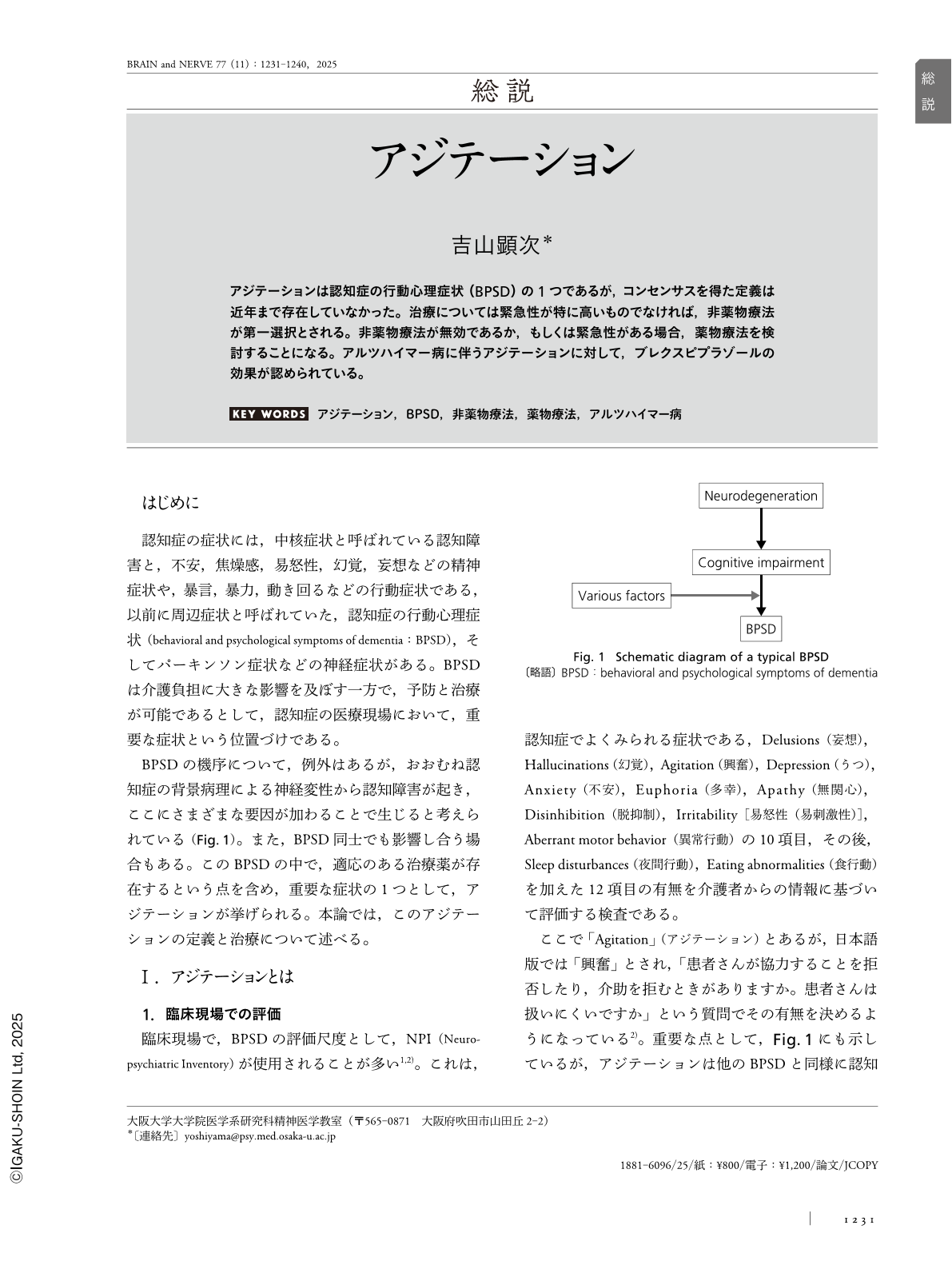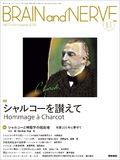Japanese
English
- 有料閲覧
- Abstract 文献概要
- 1ページ目 Look Inside
- 参考文献 Reference
アジテーションは認知症の行動心理症状(BPSD)の1つであるが,コンセンサスを得た定義は近年まで存在していなかった。治療については緊急性が特に高いものでなければ,非薬物療法が第一選択とされる。非薬物療法が無効であるか,もしくは緊急性がある場合,薬物療法を検討することになる。アルツハイマー病に伴うアジテーションに対して,ブレクスピプラゾールの効果が認められている。
Abstract
Agitation is a behavioral and psychological symptom of dementia (BPSD); however, until recently, there has been no consensus-based definition. When initiating therapeutic interventions, the type of dementia that is the cause of the BPSD must be considered and treatment must be tailored accordingly. As with other types of BPSD, non-pharmacological interventions are considered the first-line treatment for agitation, unless the symptoms present an exceptional level of urgency. Person-centered care is effective as a non-pharmacological intervention for agitation. Other examples include music therapy, animal-assisted therapy, and aromatherapy; however, these are not very effective for agitation. Useful information on non-pharmacological interventions for agitation can be obtained from the website “Ninchisho Chienowa-net,” which is a web-based system that collects information on the coping strategies of caregivers for BPSD. If non-pharmacological interventions are ineffective or the symptoms are urgent, pharmacological treatment should be considered. Brexpiprazole has been approved as effective for agitation in Alzheimer's disease. For the treatment of agitation, medications other than brexpiprazole are frequently used in clinical settings and may offer some degree of efficacy.

Copyright © 2025, Igaku-Shoin Ltd. All rights reserved.


